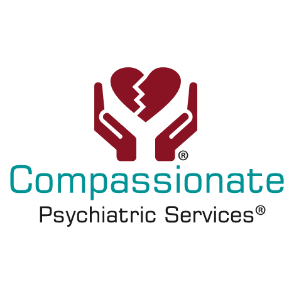In the realm of mental health, the transformative potential of group therapy is gaining increasing recognition. From the throes of depression and anxiety to the complexities of substance abuse, post-traumatic stress disorder (PTSD), obsessive-compulsive disorder (OCD), eating disorders, attention-deficit hyperactivity disorder (ADHD), ongoing stress, and even schizophrenia, group therapy has emerged as a powerful tool for healing.
Below are examples of how group therapy can offer a supportive and effective environment for individuals grappling with a variety of mental health challenges.
- Depression often thrives in isolation, making the communal setting of group therapy a particularly potent antidote. In a group, individuals can share their experiences, which helps to let them know that they are not alone in their struggles. The mutual understanding and empathy fostered in group therapy can break the chains of isolation and provide a space for shared coping strategies and encouragement.
- Group therapy for anxiety emphasizes the importance of facing fears and challenges together. Through exposure and cognitive-behavioral techniques, individuals often learn from one another’s successes and setbacks. The group dynamic provides a supportive backdrop for individuals allowing them to confront their anxieties, while promoting a sense of collective resilience and empowerment.
- Substance abuse recovery can be grueling and the camaraderie within a group setting can be a game-changer. Group therapy offers a non-judgmental space where individuals can openly discuss their struggles, learn from each other’s relapses, and celebrate milestones. The sense of accountability to the group often serves as a powerful motivator for maintaining sobriety.
- Group therapy for obsessive compulsive disorder (OCD) offers a platform to challenge and reframe obsessive thoughts and compulsive behaviors. The shared experiences of others can provide a sense of normalcy and encouragement in the face of the often-isolating nature of OCD.
- In the battle against eating disorders, group therapy serves as a supportive community that challenges distorted body image and disordered eating patterns. Sharing struggles and victories within the group can foster a sense of camaraderie and accountability. Moreover, group therapy provides a space to explore the complex emotional underpinnings of eating disorders.
- For individuals with ADHD, group therapy can be a structured environment that aids in the development of coping mechanisms. The group setting can provide an opportunity for skill-building and the exchange of practical tips for navigating daily challenges.
- For those dealing with chronic stress, the support of a group can be invaluable. Group therapy offers a safe space to share stressors, learn stress management techniques, and gain perspective on personal challenges. The group can foster resilience and provide a reminder that others are facing similar ongoing stresses.
- For those suffering from schizophrenia, group therapy can help to improve social skills, enhance communication, and address the stigma associated with the disorder. A group setting can promote a sense of belonging and reduce feelings of isolation. Additionally, sharing coping strategies and hearing others’ success stories can inspire hope and motivation.
Group therapy has emerged as a beacon of hope across a spectrum of mental health challenges. The power of connection and shared experience cannot be overstated, as individuals find solace, understanding, and practical guidance within the supportive environment of a group. As we continue to unravel the complexities of mental health, the role of group therapy stands out as a testament to the healing power of human connection.
The Benefits of Group Counseling Sessions.
Some of the many benefits you can expect with group counseling sessions at Compassionate Psychiatric Services include:
- Mutual Support and Connection
- Diverse Perspectives
- Increased Self-Awareness
- Developing Social Skills
- Highly effective results
- Improved Quality of life
Compassionate Psychiatric Services facilitates the constructive collaboration of group therapy, creating an environment where individuals not only survive but thrive. With the help of CPS, you can dismantle the barriers of stigma, promote understanding, and pave the way for a future where mental well-being is prioritized. Reach out to Compassionate Psychiatric Services today to see how their group therapy services might benefit you.



